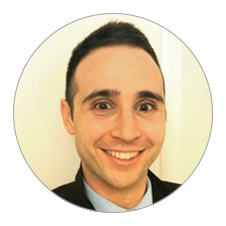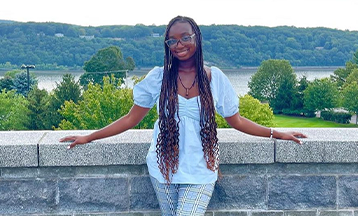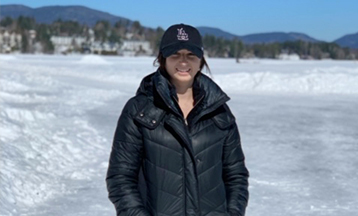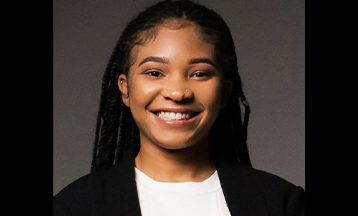-
About
Marist Commencement
Celebrating the Class of 2025
• The graduate ceremony will be held on Friday, May 23.
• The undergraduate ceremony will be held on Saturday, May 24.About
-
Academics
Marist Commencement
Celebrating the Class of 2025
• The graduate ceremony will be held on Friday, May 23.
• The undergraduate ceremony will be held on Saturday, May 24.Academics
-
Admission & Financial Aid
Marist Commencement
Celebrating the Class of 2025
• The graduate ceremony will be held on Friday, May 23.
• The undergraduate ceremony will be held on Saturday, May 24.Admission & Financial Aid
-
Student Life
Marist Commencement
Celebrating the Class of 2025
• The graduate ceremony will be held on Friday, May 23.
• The undergraduate ceremony will be held on Saturday, May 24.Student Life
- Athletics
Students talking in front of posters

Paul Vespo
Poughkeepsie, NYAcademic School
Social and Behavioral SciencesCampus
New YorkPaul Vespo is a member of Marist's M.A. in School Psychology Class of 2019. He holds a BA in Psychology with a minor in Sociology from SUNY Purchase.
Tell us about your work or professional history before Marist, including years of experience, industry, companies, and positions:
My passion for psychology began at a young age. Growing up with a sister who has severe disabilities sparked a strong yearning to learn how to understand people’s feelings and behavior. When I was fourteen years old, I was a Counselor-In-Training at my local day camp. I eventually became the camp director and managed the camp staff, resolved conflicts, implemented best practices and interfaced with parents/legal guardians of the campers. I was also a peer mentor and worked with SUNY Purchase students with Autism Spectrum Disorder (ASD). I was amazed to see the progress these students had made socially and academically and how I was able to help some of them grow so fast within just one year. Similarly, I was a rehabilitation counselor at The Arc of Dutchess, which is an agency that serves adults with developmental disabilities. As a rehabilitation counselor, I helped my clients overcome the personal, social, and professional effects of disabilities on employment or independent living.
Why did you choose to pursue your graduate degree at Marist?
My deep interest in psychology and human development guided me in my academic journey. I resonated to Marist College’s objective to teach school psychology students to be experts in psychological assessment, counseling, and educational consultation - the various roles a school psychologist must perform to be effective. Based on these respectable standards, I believed that Marist College would prepare me the best for becoming a school psychologist. In addition, the school psychology professors are phenomenal.
Tell us about a project or course that was particularly meaningful to your professional development:
During the Fall 2017 semester, I took the Consultation in the Schools course with Dr. Williams. In this class, my colleagues and I learned how to consult with teachers and school professionals so that they can help students learn efficiently based on their individualized needs. I absolutely loved this course because I learned so many innovative ways to engage in consultation. Dr. Williams has truly inspired me!
Why did you choose to participate in the SSBS Graduate Assistantship program?
My first internship at SUNY Purchase was my transfer student internship. I proposed actions that should be taken to make the transition process easier for transfer students that become enrolled at SUNY Purchase. My propositions turned into a study that was conducted by my professors, colleagues, and I. This study was presented at the SUNY Undergraduate Research Conference at SUNY Brockport. At the end of my project, I realized that working with a professor as an assistant was something I would definitely pursue in graduate school.
What kind of work did you do for the SSBS Assistantship? Did you conduct research, work with subjects, tutor other students, and/or present your research at a regional or national conference?
I am currently a graduate research assistant for Dr. Mary Stone. I have conducted research about Structured Peer Group Supervision (SPGS) for school psychologists with Dr. Stone. SPGS contains a variety of supervision models that supervisors can use with school psychologists and trainees. SPGS differs from more traditional hierarchical models of supervision since it is more structured and the trainer plays a less active role in the supervision process. Our research is going to be published in The New York School Psychologist. I also presented our study about SPGS at the New York Association of School Psychologists (NYASP) 2017 Annual Conference in White Plains, New York with Dr. Stone. Recently, I attended the National Association of School Psychologists (NASP) 2018 Annual Convention in Chicago, Illinois and presented a mini-skills workshop about SPGS with Dr. Stone. The purpose of these presentations was to inform school psychologists about the SPGS model and provide opportunities for participants to practice and gain feedback in implementing it.
How has the assistantship and graduate program helped you grow as a professional?
During my assistantship, I have become a better writer and critical thinker. When I was writing for The New York School Psychologist and preparing for my state and national conferences, I had to really think about my ideas and see if they would make sense to those who are familiar and unfamiliar with my research. Both the assistantship and graduate program have helped fuel my passion for school psychology since I have learned that I can be an eclectic practitioner based on my diverse interests. All of my experiences within this assistantship and program continue to motivate me to pursue a Ph.D. in Clinical Psychology or School-Clinical Psychology.
What advice would you give to a student considering pursuing a graduate degree at Marist and applying for the assistantship program?
I strongly recommend that prospective students thoroughly read Marist College’s graduate program guidelines and take the time to research their field of interest. This should involve researching the state and national organization of a field of interest, the credentialing process, and what one can do with a degree in it. It is also important to speak with practitioners in a certain field of interest as well as other fields in order to formulate an individual perspective. I spoke with clinical psychologists, clinical social workers, and mental health counselors before I decided to pursue school psychology. I realize that by doing this, I was able to discover my interest in school psychology.



